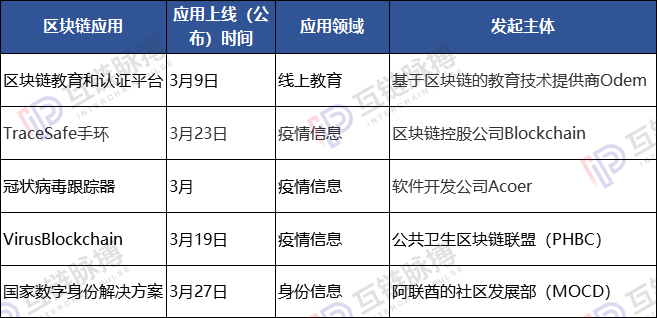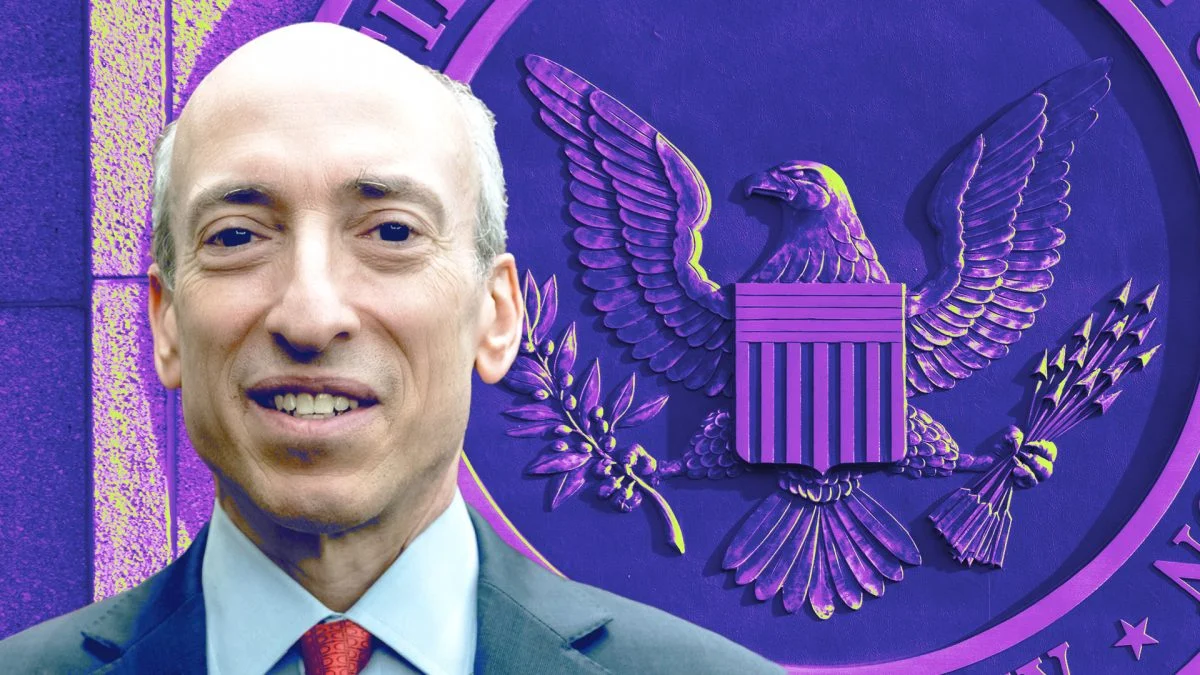Comparison of overseas blockchain epidemic prevention with China: limited use cases, lack of government presence
When the domestic epidemic eased gradually in March, the overseas epidemic broke out suddenly. As of 17:00 Beijing time on the 26th, the number of confirmed cases in overseas countries reached 380,723; the number of deaths reached 17,541.
In order to cope with the severe epidemic situation, overseas countries have also started to use blockchain as an "epidemic weapon".
In mid-March, the Department of Homeland Security's Cyber Security and Infrastructure Security Administration (CISA) stated in a memorandum that "blockchain managers" are critical "critical infrastructure" work during epidemic prevention By.
Previously, China has also launched more blockchain epidemic prevention applications in response to epidemic situations. Compared with overseas applications, there are certain differences between the two.
- Popular science | Is distributed, decentralized, multi-centralized the same thing?
- Linked US stocks fell again, BTC pullback sentiment strengthened
- Understand the difference between token financing and equity financing
Epidemic prevention application of overseas blockchains: mainly tracking and disclosing epidemic information
The mutual chain pulse combing public information found that there are currently blockchain applications overseas that assist in epidemic prevention, but the number is small, with only five. Of these five applications, three are based on the tracking and disclosure of epidemic information.

On March 23, Blockchain Holdings Limited ("Blockchain") acquired TraceSafe and its patented technology. It is reported that TRACEsafe is a set of innovative health and safety products, including bracelets and software solutions. The bracelet can be connected to a mobile phone to locate users and provide users with accurate location information.
And this location tracking function is just suitable for the current epidemic surveillance scenario. TRACEsafe's proprietary isolation supervision system can record the time stamp and user location to the central monitoring system through the application used by users and administrators to understand the epidemic situation. Whether the infected person is isolated.
It is reported that the Hong Kong government has previously used bracelets to track the activities of patients with coronavirus, and the project is expected to be launched in multiple countries and regions in the next few weeks or months.
The TraceSafe bracelet project tracks information about people infected with the outbreak; the VirusBlockchain project launched by the Public Health Blockchain Alliance (PHBC) is designed to monitor the activities of uninfected people to help people stay away from vulnerable areas.
The VirusBlockchain project is to integrate real-time information from outbreak surveillance providers with artificial intelligence (AI) geographic information systems (GIS) to automatically identify areas with or without an outbreak.
It is also an application focusing on epidemic information tracking. Software development company Acoer is using blockchain technology to create a corona virus tracker, which provides data visualization tools for corona viruses. The project tracks infections, deaths and recovery in real time across the globe and captures tweets related to coronavirus cases. The application of distributed ledger technology in the project is to build trust in the data in the visualization tools.
In fact, in the above three applications, the role played by the blockchain is to ensure the truth, accuracy and immutability of the epidemic information, and to further realize the timely sharing of the epidemic information.
On the other hand, like the development of online education during the outbreak of China, foreign online education platforms have seized the opportunity and applied the blockchain to the education certification scene.
In early March, Odem, a blockchain-based educational technology provider, opened its blockchain education and certification platform to educational institutions that were closed due to the corona virus for free.
It is understood that Odem's platform enables teachers to issue “Achievement Digital Certificates” when teaching online, and at the same time, the project can remotely track student activities, record their achievements on the blockchain, and bring back traditional certifications when they return to school. System.
In addition, the field of online government affairs is also an area of greater concern overseas.
Currently, the UAE's Ministry of Community Development (MOCD) is already using official blockchain certificates and digital certifications, and uses the blockchain system to process different types of documents. In this way, the public does not need to visit government agencies and service centers to receive government services remotely using digital identities.
In addition, within the UAE government, the Ministry of Health and Prevention (MoHAP) has a blockchain platform for storing health care and drug data, and there is a blockchain for health worker credential checks.
Differentiation of Chinese and Foreign Blockchain Epidemic Prevention Applications
In fact, the overseas epidemic broke out at the end of February, but judging from the currently disclosed blockchain epidemic prevention applications, the number and areas involved are relatively small; on the other hand, the epidemic broke out in China at the end of January. By the end of February, 26 blockchain epidemic prevention applications had been launched, and involved many business fields such as charity information, epidemic information, charitable donation management, epidemic prevention material management, and corporate financial services.
Mutual Chain Pulse further noted that overseas and China's blockchain epidemic prevention applications have focused on promoting the application of blockchain in the field of identity information and epidemic situation information. However, there are no applications for charitable donations, epidemic prevention materials management, and corporate financial services in foreign countries, and the use cases are relatively limited. In China, there is no certification of blockchain certificates in the field of education.
This may be related to the national conditions of various countries. Overseas citizens are more sensitive to the disclosure of private information. It is difficult to track personal information projects. There is no urgent need for charitable donations and epidemic prevention materials management abroad.
In addition, in terms of the main body, the domestic blockchain epidemic prevention application is led by government departments and state-owned enterprises. The Beijing, Guangdong, Shandong, and Fujian provincial governments have initiated blockchain epidemic prevention projects. China Xiong'an Group, State-owned enterprises and other state-owned enterprises have also participated in related applications.
For example, the Nansha District Government of Guangzhou City launched the Nansha District Epidemic Prevention and Control Collaboration System based on the blockchain on February 2; the Jinan Municipal Government launched the blockchain-based epidemic prevention and control platform on February 6; the Beijing Municipal Government 2 On July 7th, a blockchain-based supply chain debt and debt platform was launched, and so on. While the government is taking the lead, domestic Internet companies, native blockchain companies, universities, and many other parties have helped.
However, the main bodies of foreign blockchain epidemic prevention projects are companies and alliances, and there is no government figure.
Although there are differences in the practice areas of blockchain epidemic prevention among countries, there is no difference in the epidemic situation. China and overseas are already a community of destiny. At this stage, the realization of cross-border mutual trust based on the blockchain is particularly worthwhile to promote the tracking, recording and sharing of global epidemic information. This may be the direction that countries can work together to promote under the epidemic.
We will continue to update Blocking; if you have any questions or suggestions, please contact us!
Was this article helpful?
93 out of 132 found this helpful
Related articles
- Analysis: Ethereum, the largest "air coin" in the industry?
- Digital Dollar Foundation: America Needs Real "Digital Dollars"
- Will the USDT market cap exceed Bitcoin? Stablecoin has become a strategic highland of blockchain
- Blockchain and agency risk: we just need to trust the code
- Ethereum core developer: MPT hex tree will be replaced
- BKS officially logs in LBANK! Airdrop candy show!
- KPMG 2019 Global Fintech Pulse Report: Blockchain is still a key investment area, large companies and governments have already acted






